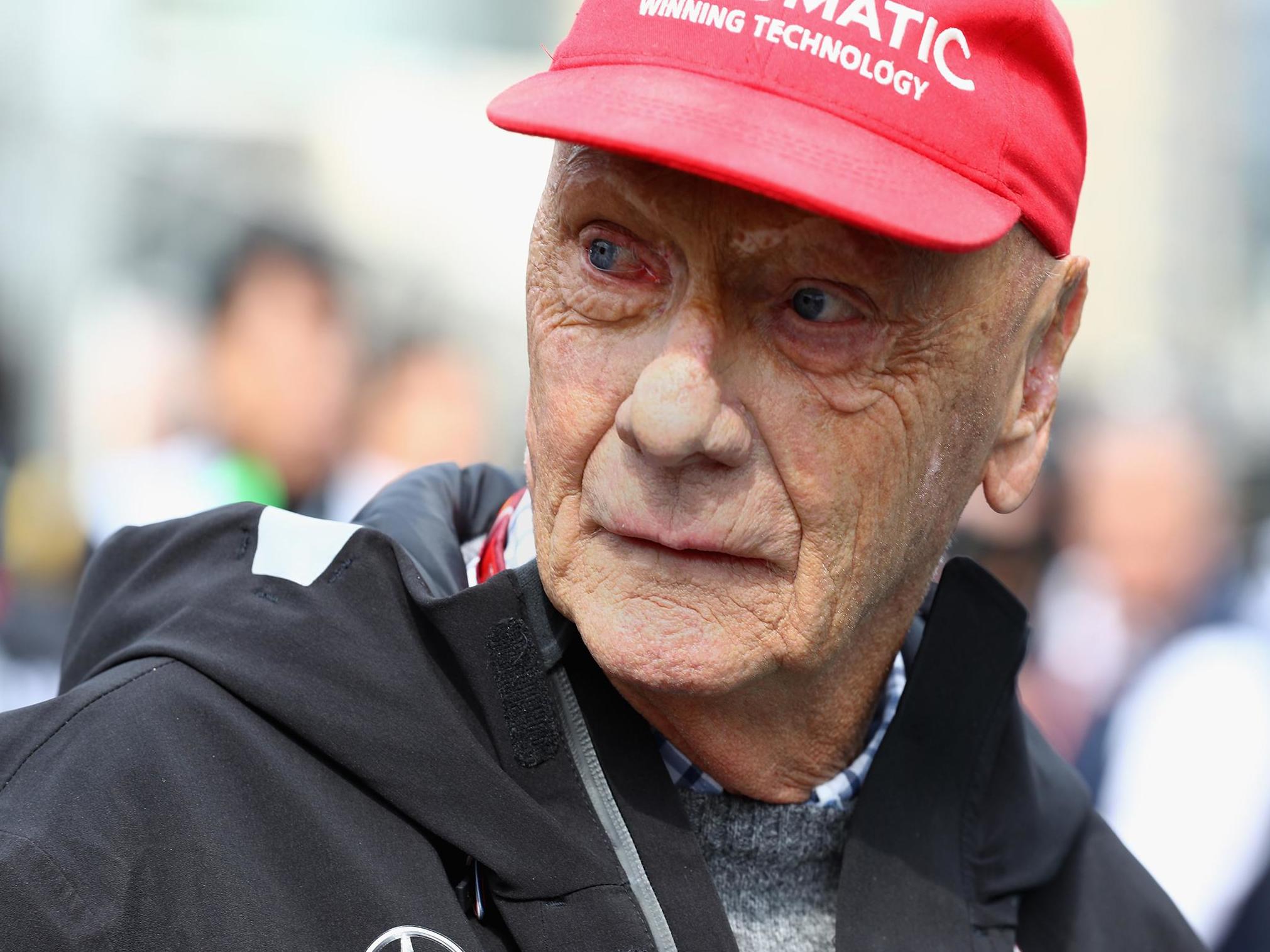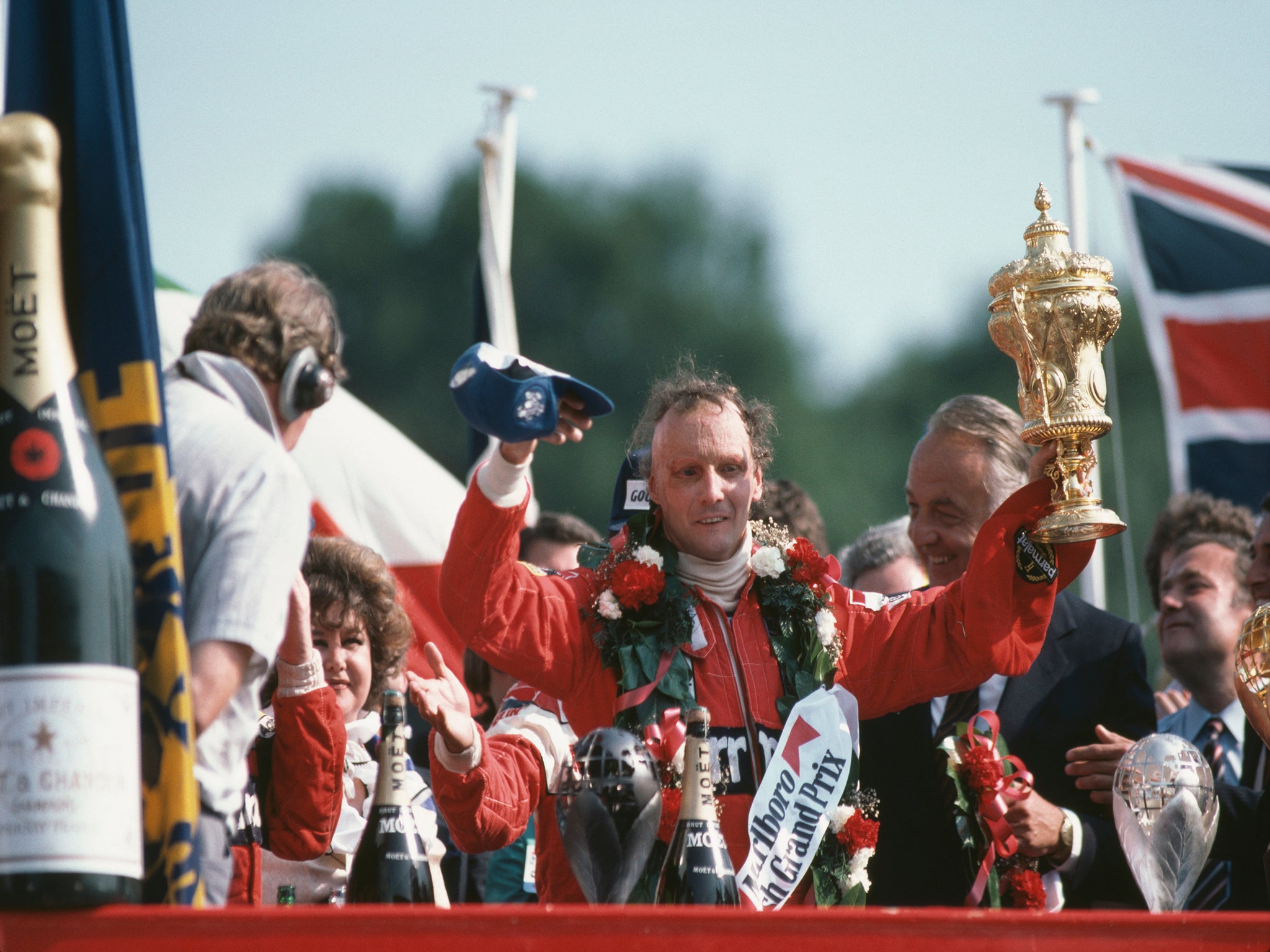Niki Lauda: Austrian Formula 1 driver who showed the meaning of fighting spirit
Surviving a fiery crash in a 1976 race, the three-time F1 championship winner became a hero for drivers

Niki Lauda suffered horrific burns to his head in a 1976 crash during the German Grand Prix, losing most of his right ear and much of his hair, eyebrows and eyelids. There was no way to hide the scarring and Lauda barely tried, sporting a red baseball hat that he called “my protection for stupid people looking at me stupidly”.
He also had the perfect comeback for anyone who would give him such a look or fail to look him in the eye during conversations.
“I have an accident as an excuse to look ugly – some people don’t have this excuse,” the Austrian told journalist Graham Bensinger in 2017.
It was that sort of defiance that propelled Lauda, who died on Monday aged 70, to the top of the autoracing world even after the crash. Still wearing blood-soaked bandages two races after the crash, Lauda would finish fourth at the 1976 Italian Grand Prix. The next year, he would win the F1 drivers’ championship, the second of his career, with a third coming in 1984.
“His unique successes as a sportsman and entrepreneur are and remain unforgettable,” Lauda’s family said in a statement. “His tireless drive, his straightforwardness and his courage remain an example and standard for us all. Away from the public gaze he was a loving and caring husband, father and grandfather. We will miss him very much.”
The cause of death was not announced, but Lauda had a lung transplant in Vienna last year, his doctor told the Associated Press. He also had two kidney transplants, in 1997 and 2005. According to the Associated Press, Lauda is survived by his second wife, Birgit, and their twin children Max and Mia. He had two adult sons, Lukas and Mathias, from his first marriage.
Lauda’s career, including the 1976 crash and his friendly rivalry with British driver James Hunt, was documented in Ron Howard’s 2013 film Rush. Despite the crash, Lauda trailed Hunt by only three points entering the final race of the season in Japan, where heavy rain led to a dangerously wet track. And even though he still had a shot at the title, Lauda protested the unsafe conditions by retiring after one lap in that final race, with Hunt winning the season championship by a point.

“I was spokesman for the drivers then, and I stood up and said: ‘Are you guys f***ing crazy? The rain has not stopped. It’s got worse. You cannot do this,’ ” Lauda told The Guardian in 2016. “But the guy insisted. For me it was ridiculous. Because of a stupid TV deal we had to go out there and risk our lives. No one could see anything. It was a disaster.
“So then I decided for myself that television was not a good enough reason for me to race. So I told [team owner] Ferrari beforehand I would do one lap, which I did, and then I stopped. I have no regrets. I would do the same again. But I have to say that without my accident, maybe, I would have had the reserves to do it.”
Lauda retired after the 1985 F1 campaign, devoting his time to the airline company he had started.
“The whole country and the motorsports world are mourning a really great Austrian,” Chancellor Sebastian Kurz wrote on Twitter.
© Washington Post

Join our commenting forum
Join thought-provoking conversations, follow other Independent readers and see their replies
Comments
Bookmark popover
Removed from bookmarks